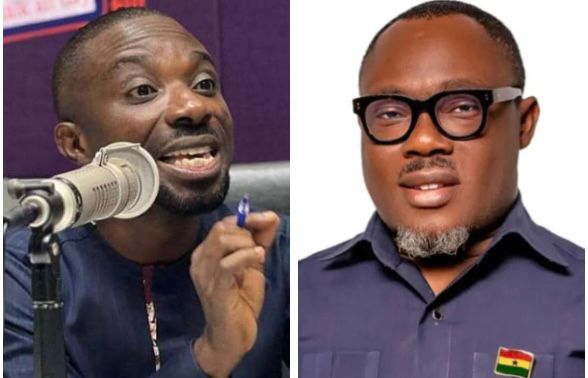The political landscape in Ghana is ablaze with accusations and counter-accusations regarding the persistent issue of illegal mining, commonly known as galamsey. Professor Ransford Gyampo, the Acting Chief Executive Officer of the Ghana Shippers Authority, ignited the latest firestorm with his critique of the New Patriotic Party (NPP). Professor Gyampo accused the NPP, which held power for eight years under former President Nana Addo Dankwa Akufo-Addo, of neglecting the galamsey crisis and even facilitating its expansion. This accusation points to a perceived lack of action and political will to combat the devastating environmental and social consequences of illegal mining during the NPP’s tenure.
Dennis Miracles Aboagye, an aide to former Vice President Dr. Mahamudu Bawumia, swiftly countered Professor Gyampo’s assertions. Aboagye’s response was sharp and personal, accusing Gyampo of hypocrisy and political opportunism. He alleged that Gyampo leveraged his union platform to secure an NDC victory and a subsequent lucrative position, only to remain silent on the galamsey issue once in power. This accusation raises questions about Gyampo’s motivations and credibility in criticizing the previous administration’s handling of illegal mining. Aboagye’s aggressive rhetoric further escalates the political tension surrounding the galamsey debate.
Aboagye’s counter-offensive went beyond personal attacks on Gyampo. He leveled accusations against the current NDC government, claiming that its members have taken control of galamsey operations and that the state is discreetly purchasing gold from illegal miners. This allegation, if substantiated, would represent a serious breach of trust and a direct contradiction of the government’s stated commitment to combating illegal mining. It paints a picture of a government complicit in the very activity it publicly condemns, thereby potentially exacerbating the environmental and social problems associated with galamsey.
The heart of the dispute revolves around the responsibility for the ongoing galamsey crisis. Gyampo’s critique suggests that the NPP’s inaction laid the groundwork for the current situation. Aboagye, however, shifts the blame squarely onto the incumbent NDC government, arguing that their alleged involvement in illegal mining activities represents a significant escalation of the problem. This stark contrast in perspectives highlights the deep political divisions and the difficulty in reaching a consensus on the root causes of and solutions to the galamsey menace.
The exchange between Gyampo and Aboagye illustrates the complex political dynamics at play in Ghana’s fight against illegal mining. The accusations of hypocrisy, political opportunism, and government complicity underscore the challenges in addressing this complex issue. The public back-and-forth underscores the urgency of finding effective solutions to galamsey, as its devastating environmental and social consequences continue to threaten the country’s future. The ongoing debate also highlights the need for transparency and accountability in the government’s efforts to combat illegal mining.
The escalating rhetoric and accusations surrounding galamsey underscore the critical need for a comprehensive and non-partisan approach to addressing this national crisis. The focus should shift from political point-scoring to concrete actions aimed at eradicating illegal mining activities and mitigating their devastating impact on Ghana’s environment and communities. A collaborative effort involving government, civil society organizations, and local communities is crucial to achieving sustainable solutions and ensuring a future free from the scourge of galamsey. The contentious debate serves as a stark reminder of the urgent need for action and the importance of prioritizing the long-term well-being of the nation over political maneuvering.














